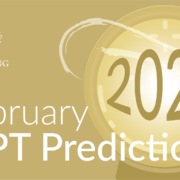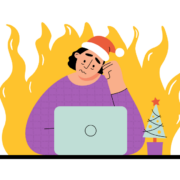Overcoming Law School Test Anxiety and Bar Exam Anxiety—A New Tip that May Surprise You
Overcoming Law School Test Anxiety and Bar Exam Anxiety—A New Tip that May Surprise You.
Whether you are taking the LSAT, law school final exams, or the bar exam, you may feel test anxiety. Some students feel debilitated by anxiety and panic, miss questions, and fail because of their anxiety or get a lower score than they otherwise would.
Overcoming Law School Test Anxiety and Bar Exam Anxiety
We have had several students who have panic attacks, hot flashes, cannot concentrate, and miss questions as a result of their law school anxiety or bar exam anxiety. Others are only moderately affected by anxiety and describe taking five or ten minutes to calm down and orient themselves to the test. However, we think that any amount of bar exam anxiety or law school anxiety is too much anxiety to have! We work hard to help our students overcome it.
There are many ways to overcome test anxiety, including being prepared, engaging in visualization and positive self-talk, making exercise, sleep, and nutrition a priority prior to your test, arriving early to the test, etc. (and we will have more posts on this in the future).
However, we recently read another tip which we thought was very interesting (and well worth a try!): Try to turn anxiety into excitement.
In his wonderful book, Originals: How Non-Conformists Move the World, Adam Grant describes an experiment regarding anxiety: Alison Wood Brooks, a professor at Harvard Business School asked college students to do a persuasive speech that would be videotaped and evaluated by a critical experimenter as well as a committee of peers. Many of the college students were visibly nervous and shaking prior to their speeches.
You might think that the best advice for them would be to try to calm down—indeed, the most popular recommendation for speech anxiety is to “try to relax and calm down.” However, it is not the most effective one. Before the students gave their speeches, Brooks asked the students to speak three words out loud. Some students were told to say “I am calm”; others were told to say, “I am excited.” When students labeled their emotions as excitement, their speeches were rated as 17 percent more persuasive and 15 percent more confident. It also motivated the students to speak longer.
This was also replicated in another experiment when students were nervous before taking a difficult math test. They scored 22% better if they were told “Try to get excited” instead of “Try to remain calm.” That is a huge percentage!
Why does getting excited work better than trying to calm yourself down?
Adam Grant says, “Fear is an intense emotion: You can feel your heart pumping and your blood coursing. In that state, trying to relax is like slamming on the brakes when a car is going 80 miles per hour. The vehicle still has momentum. Rather than trying to suppress a strong emotion, it’s easier to convert it into a different emotion—one that’s equally intense, but propels us to step on the gas.”
If trying to “calm down” before a test (or a speech) does not work well for you, it is well worth it to instead re-label your anxiety as “excitement” and see if it helps you. Even if this helps you get one more question right or approach the test in a calmer manner, it is worth it. It could make the difference between an A- and a B+ on a law school exam, or between passing and failing the bar exam.
Pursuing Law School? We’ve Got You Covered!
🌟 Special Offer: Enroll in our FREE on-demand law school prep course, meticulously crafted by a top-ranked law student. Secure your spot now






Comments are closed.